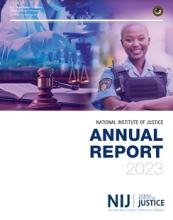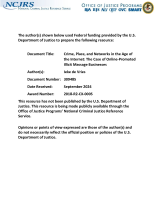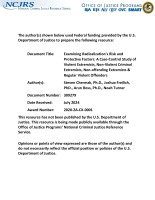Essays on Mental Health, Education, and Parental Labor Force Participation
Date Published
2024
Agencies
NIJ-Sponsored
Publication Type
Research (Applied/Empirical),
Thesis/Dissertation








